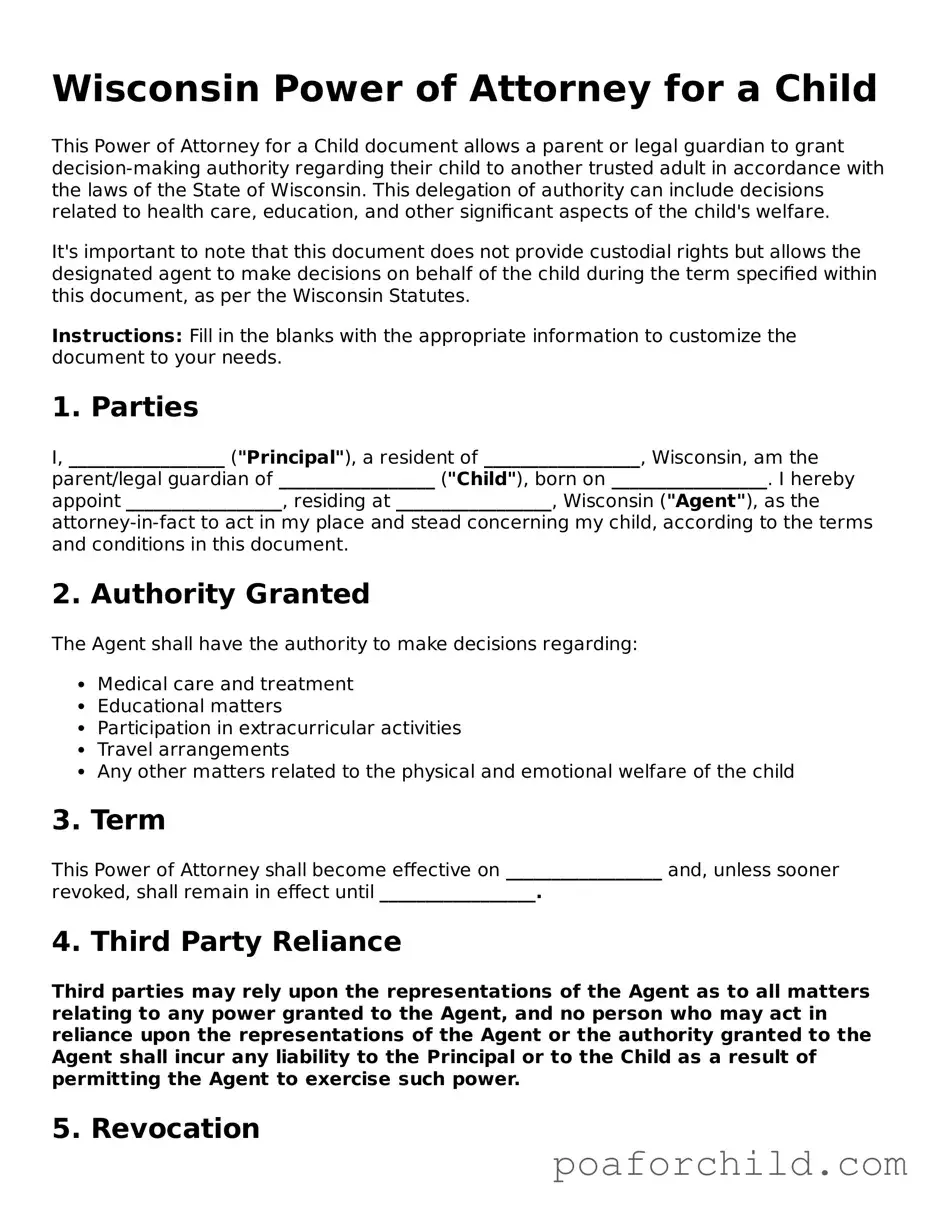Detailed Guide for Using Wisconsin Power of Attorney for a Child
Completing a Power of Attorney (POA) for a child in Wisconsin is a significant step in ensuring the child's well-being and care is managed in the parent's or legal guardian's absence. Whether due to travel, illness, or any other reason, this legal document authorizes a trusted individual to make decisions and take actions on behalf of the child. The process involves providing detailed information about the child, the parents or legal guardians, and the appointed agent. By filling out this form accurately and thoroughly, you can ensure the appointed agent has the authority needed to care for the child as specified. Here are the detailed steps for completing the Wisconsin Power of Attorney for a Child form.
- Gather all necessary information, including the full legal names and addresses of the child, the parents or legal guardians, and the appointed agent (the person you are giving power to).
- If the form has a section for it, write the child's date of birth and social security number to identify them clearly.
- Specify the powers you are granting to the agent. This may include decisions related to the child's education, medical care, and general welfare. Ensure you understand each power you are delegating.
- Determine the duration of the power of attorney. Some forms allow you to set a specific start and end date. If it's meant to be temporary, include these dates. Otherwise, note if the POA is to remain in effect until revoked.
- Include any special instructions or limitations to the agent's powers. This section allows you to customize the POA to suit your child's specific needs or your preferences.
- Review the form to ensure all the information provided is accurate and complete. Mistakes or omissions can affect the legal enforceability of the document.
- Follow the instructions for signing the form, which typically requires the signatures of the parents or legal guardians. Some states may require the agent to sign as well.
- Check if your state requires the document to be notarized or witnessed, and if so, complete these steps. In Wisconsin, notarization or witnessing can add legal validity to the document.
- Provide the original document to the appointed agent, and keep copies for your records and possibly for other parties, such as the child's school or healthcare provider.
By carefully following these steps, you can complete the Power of Attorney for a Child form in Wisconsin, granting the necessary authority to the chosen agent to act in the best interest of the child. This process ensures that, in your absence, your child remains cared for and their needs are adequately met by someone you trust.
